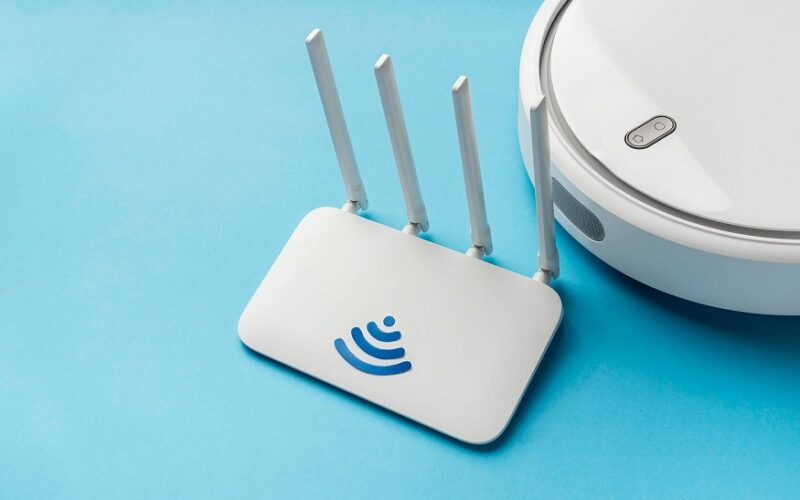Widely recognized as the latest and the fastest type of data connection, fiber internet has taken the digital world by storm. With its exceptional speeds and secure connection capabilities, fiber internet services have quickly become a popular choice amongst internet users.
If you have been on the fence about getting a fiber internet connection, you must be wondering if it is even worth the hype. How does fiber internet work? What does it offer? Are there any disadvantages to getting a fiber internet connection? In this article, we tackle all these questions and more!
The Technology behind Fiber Internet
Fiber internet, also known as fiber-optic internet, uses fiber-optic cables to transmit data at incredibly high speeds. These cables are made up of tiny strands of glass, coated with plastic, and are capable of carrying digital information using light waves.
The technology works by converting electrical signals into light signals, which are then transmitted through fiber-optic cables. Because light travels faster than electricity, fiber internet can deliver data much more quickly than traditional copper wire connections.
Fiber internet is not affected by electromagnetic interference, which can disrupt data transmission in copper wire connections. This technology is revolutionizing the way we access and use the internet, providing faster speeds, greater reliability, and more bandwidth for users.
Fiber Optic Internet: Pros
Fiber internet has several advantages over traditional copper wire connections. These benefits include faster speeds, greater reliability, and more bandwidth for users. Furthermore, fiber internet is rapidly becoming the preferred choice for businesses and individuals who require high-speed, reliable internet connectivity. Here are some of the benefits offered by a fiber internet connection:
Unparalleled Speeds
Fiber internet offers unrivaled speed compared to traditional copper wire connections. The reason behind this is that fiber-optic cables use light to transmit data, which travels faster than electricity. As a result, fiber internet can provide download and upload speeds that are significantly higher than those offered by copper wire connections.
With fiber internet, users can download and upload large files, stream high-definition videos, and play online games with minimal latency and buffering. In addition, a fiber internet connection provides more consistent speeds, as it is less affected by external factors such as distance from the exchange or interference from other electrical devices
Symmetric Speeds
Fiber optic internet offers symmetric speeds, which means that the upload and download speeds are the same. This is in contrast to traditional copper wire connections, which often have faster download speeds than upload speeds.
With symmetric or equal speeds, fiber internet provides a more balanced and reliable internet experience. Users can upload and download files, stream high-definition videos, and participate in video conferences with ease, without experiencing delays or buffering.
Secure Connection
Fiber optic internet offers a secure connection that is difficult to intercept or tap into, making it an ideal choice. This is due to the unique physical properties of fiber optic cables that use light to transmit data instead of electrical signals, which makes it difficult for unauthorized parties to intercept the signal.
Fiber optic cables are made of glass or plastic fibers that are immune to electromagnetic interference. This also means that they are less susceptible to data breaches that may occur due to external factors such as power lines or other electronic devices. The cables also have a lower signal loss rate than copper wires, which means that data is less likely to be corrupted or lost during transmission.
Fiber optic internet also offers encryption capabilities, which add an extra layer of security to the data transmitted. Encryption scrambles the data, making it unreadable by anyone who doesn’t have the encryption key. This ensures that sensitive data remains private and secure during transmission.
Reliable Internet Performance
Fiber optic internet is known for its dependable performance, offering consistent speeds with fewer interruptions and downtime as compared to conventional copper wire connections. External factors like distance from the exchange, electrical interference, and adverse weather conditions that can cause transmission interruptions do not affect fiber-optic cables to the same extent.
Fiber Optic Internet: Cons
Despite its many advantages, fiber internet has some drawbacks. These include limited availability in certain areas, higher costs compared to traditional copper wire connections, and the need for professional installation.
Additionally, fiber optic cables are more fragile than copper wires and can be more challenging to repair if damaged. Finally, because fiber internet technology is relatively new, there may be limited knowledge and expertise in some areas, making it difficult to troubleshoot and fix issues.
Expensive
Fiber optic internet can be more expensive than traditional copper wire connections. This is due to the higher cost of installation, maintenance, and equipment required for fiber internet. The cost of laying fiber optic cables can be significant, especially in areas with limited infrastructure or where digging up streets and sidewalks is necessary.
Furthermore, fiber optic equipment, such as routers and modems, is more expensive than traditional equipment. The cost of fiber internet is gradually decreasing as the technology becomes more widespread and competition between service providers increases.
Limited Availability
One of the main drawbacks of fiber optic internet is its limited availability. While fiber internet is becoming more widespread, it is still not available in many areas, especially in rural or remote locations.
This is due to the lack of fiber infrastructure in these areas. The cost of laying fiber optic cables is significantly high, which can make it economically unviable for service providers to offer in some areas. For this reason, you will notice that fiber availability is limited to metropolitans and suburbs. Even in suburbs, getting a true fiber connection is difficult. As a result, some users may have limited options for high-speed and reliable internet connectivity, depending on where they live.
If you live in an area, where you have access to Spectrum internet seize the chance of getting their service. Spectrum offers a hybrid fiber-coaxial connection, which combines the transmission technologies of fiber optic and coaxial cable connections. For this reason, you can enjoy better speeds than conventional cable connections. If you want to learn more about their internet plans, click here or call the Spectrum phone number.
In Conclusion
There is no denying that a fiber optic connection offers significant advantages over traditional copper wire connections. These include faster speeds, a more reliable connection, and connection security.
However, there are also some disadvantages to consider, including limited availability, higher costs, and the need for professional installation. While the higher upfront costs of fiber internet can be a deterrent for some users, the benefits of faster speeds and more reliable performance may outweigh the investment in the end. If you are a heavy-duty internet user, switching to a fiber connection is more beneficial for you.
It is important to consider the specific needs and circumstances of all the users in your homes when deciding whether fiber internet is the best option for you. Overall, as the technology becomes more widespread and the costs continue to decrease, fiber optic internet has the potential to become a more accessible and viable option for high-speed and reliable internet connectivity.
If you are looking for a reliable Fiber internet provider or simply want to know if the service is available in your area, visit BuyTVInternetPhone.

